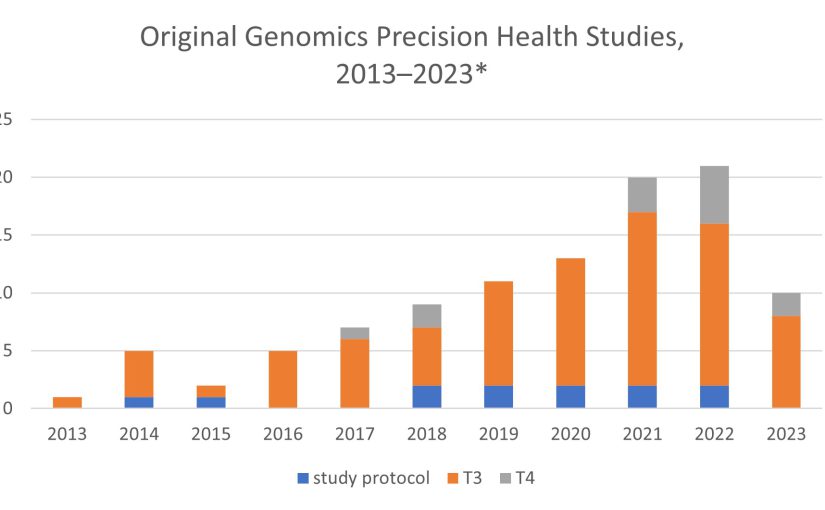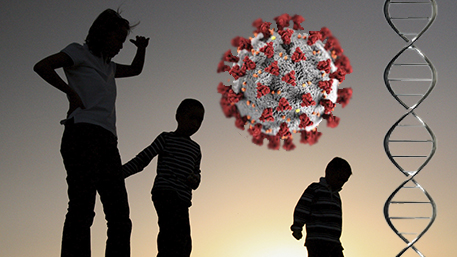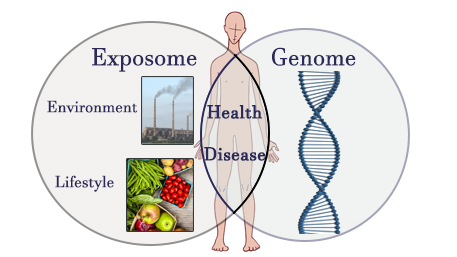Search Results
10 results for public health genomics
Medications for the Masses? Pharmacogenomics is an Important Public Health Issue

Adverse drug events are a serious public health problem. Consider the following facts: an estimated 82% of American adults take at least one medication and 29% take five or more; 700,000 emergency department visits and 120,000 hospitalizations are due to adverse drug events annually; $3.5 billion is spent on extra medical costs of adverse drug
Posted on by 3 CommentsPersistent Underutilization of BRCA Testing for Breast and Ovarian Cancer in the United States: Implications for Health Disparities

Two recent studies document ongoing underutilization and disparities in genetic testing for patients with breast and ovarian cancer. BRCA1 and BRCA2 (BRCA) genetic testing is supported by clinical guidelines to inform hereditary cancer risk for people with certain personal or family health histories of breast, ovarian, pancreatic, or prostate cancer, and to guide treatment decisions
Posted on by 1 CommentPopulation-based Genomic Screening Programs: The Need for Optimal Implementation to Ensure Health Equity

Population genomic screening of adults has emerged as a strategy to promote prevention of common diseases such as cancer and heart disease among persons with genetic conditions. This type of screening has the potential to identify millions of currently undetected people in the United States who are at risk of preventable diseases for which evidence-based
Posted on byTracking the Contributions of Implementation Science to the Population Health Impact of Genomics and Precision Health: A New Knowledge Base

Successful implementation of evidence-based genomic and precision health interventions requires an understanding of what works and what doesn’t work within the context of various clinical and public health settings. Research and evaluation that incorporate implementation science tools and methods into the translation of these interventions facilitate this. Here we present a new CDC knowledge base,
Posted on by 1 CommentTracking the Impact of the All of Us Research Program: The All of Us Reports and Publications Database

The All of Us Reports and Publications Database (AofURPD) is a continuously updated, searchable database referencing and linking to peer reviewed journal publications, preprint records, as well as select information from websites and media sources that relate to the All of Us Research Program. This blog provides a baseline overview of the content of the
Posted on by 3 CommentsRare Primary Immunodeficiency Diseases and COVID-19: Evolving Insights and Implications for Clinical and Public Health Practice

In this post, we explore how new research on rare genetic diseases is contributing to our understanding of COVID-19 occurrence and outcomes and discuss potential clinical and public health implications. Understanding the mechanisms involved in these inherited disorders may shed light on biological mechanisms and natural history of COVID-19. Primary Immunodeficiency and COVID-19 Primary immunodeficiency (PI)—often
Posted on byInterplay Between the Exposome and the Genome in Health and Disease

A recent review assessed the interplay between environmental exposures and the human genome and showed ways that this interplay can alter disease risk. Many diseases, such as birth defects and developmental disabilities, type 2 diabetes and cancer, are influenced by both environmental and genetic factors. The cumulative effects of environmental exposures prenatally and throughout life
Posted on byIncreasing Use and Impact of Family Health History in Medically Underserved Populations: Work in Progress

Despite years of public health efforts, family health history remains underutilized in clinical care, especially among people who are medically underserved. To address these issues, CDC’s Office of Genomics and Precision Public Health hosted a webinar on November 14, 2022, in conjunction with National Family Health History Day (Thanksgiving). The speakers called for better informed,
Posted on byPreventing Disease and Protecting Health Among Individuals at Increased Genetic Risk: A Lifespan Perspective and an Emerging Public Health Challenge

Since the completion of the Human Genome Project, major advances have occurred in the translation of human genome discoveries into clinical practice and disease prevention. As almost all human diseases are due to complex gene-environment interactions, the applications of human genomics should be pertinent to the prevention and control of many diseases, including rare and
Posted on byFrom Genomics to Proteomics— What’s the Impact on Population Health?

Advances in genomic sequencing technology are transforming medical discovery, enabling researchers to conduct comprehensive explorations across whole genomes for individuals and populations. Genomics has led to valuable insights into the complex processes influencing health and disease. It has paved the way for studying how genes regulate the most basic functions of the cell, including what
Posted on by 1 Comment